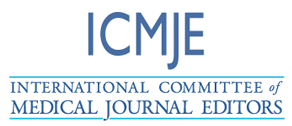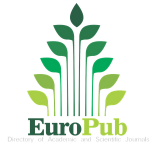Plasma Magnesium Levels, Hypomagnesaemia, Cancers, Other Diseases and Associated Factors among Tanzanian Patients
DOI:
https://doi.org/10.55677/IJCSMR/V2I5-02/2022Keywords:
Magnesium, Hypomagnesaemia, Hypermagnesaemia, Diseases, Cancer, TanzaniaAbstract
Background: Although plasma magnesium deficiency may contribute to high cancer burden, data in sub-Saharan Africa is either scanty or unavailable which hinders intervention strategies. The aim of this study was to evaluate the association of magnesium derangements with cancers, other diseases/factors among patients at Muhimbili National Hospital (MNH), Tanzania.
Method: One month cross-sectional study (October 2019) involving magnesium testing. Demographics and laboratory results were retrieved and analyzed using SPSS. The cut-off point for deficiency was <0.66mmol/L and P-value ≤0.05 was statistically significant.
Results: Out of 972 samples tested, 264(27.2%) showed hypomagnesaemia, including males 103[39.2%] and females 161[61.0%] (M:F ratio=1:1.6). Males had lower mean plasma magnesium levels compared to females (P-value=0.048) with a decrease in magnesium levels with increasing age (P-value=0.000). A negative correlation between age and magnesium (P-value=0.004) suggested an age-and-sex-dependent discrepancy. Interestingly, hypomagnasaemia was more frequent in cancers (31.9%) and mean levels for cancers (0.7377mmol/L) appeared lower than for non-cancers (0.8622mmol/L) and infections (0.8686mmol/l) P-value=0.001. Solid tumors were mostly (96.2%) associated with hypomagnesaemia (P-value=0.001). Gastrointestinal (GI) cancers (43.4%), lymphomas (22.6%) and gynaecological malignancies (15.1%) were more frequently associated with hypomagnesaemia (P-value=0.000).
Conclusion: Almost one third of tested samples at MNH during the study period showed hypomagnesaemia, which was more associated with cancers, mostly solid including GI, lymphomas and gynecological cancers. Hypomagnesaemia seemed to increase with increasing age. Plasma magnesium derangements appeared more frequently in females. This is the first time the association of hypomagnesaemia with disease is documented from Tanzania. Larger studies will allow further elucidation.
References
Swaminathan R: Magnesium metabolism and its disorders. Clin Biochem Rev 2003, 24(2):47-66.
Tam M, Gomez S, Gonzalez-Gross M, Marcos A: Possible roles of magnesium on the immune system. Eur J Clin Nutr 2003, 57(10):1193-1197.
Laires MJ, Monteiro C: Exercise, magnesium and immune function. Magnes Res 2008, 21(2):92-96.
Gile J, Ruan G, Abeykoon J, McMahon MM, Witzig T: Magnesium: The overlooked electrolyte in blood cancers? Blood Rev 2020, 44:100676.
Ravell JC, Chauvin SD, He T, Lenardo M: An Update on XMEN Disease. J Clin Immunol 2020, 40(5):671-681.
Mwakigonja AR, Kaaya EE, Heiden T, Wannhoff G, Castro J, Pak F, Porwit A, Biberfeld P: Tanzanian malignant lymphomas: WHO classification, presentation, ploidy, proliferation and HIV/EBV association. BMC Cancer 2010, 10:344.
Ravell J, Otim I, Nabalende H, Legason ID, Reynolds SJ, Ogwang MD, Ndugwa CM, Marshall V, Whitby D, Goedert JJ et al: Erratum to "Plasma magnesium is inversely associated with Epstein-Barr virus load in peripheral blood and Burkitt lymphoma in Uganda" [Cancer Epidemiol. 52 (2018) 70-74]. Cancer Epidemiol 2018, 55:192.
Riedel F, Zaiss I, Herzog D, Gotte K, Naim R, Hormann K: Serum levels of interleukin-6 in patients with primary head and neck squamous cell carcinoma. Anticancer Res 2005, 25(4):2761-2765.
Ravell J, Otim I, Nabalende H, Legason ID, Reynolds SJ, Ogwang MD, Ndugwa CM, Marshall V, Whitby D, Goedert JJ et al: Plasma magnesium is inversely associated with Epstein-Barr virus load in peripheral blood and Burkitt lymphoma in Uganda. Cancer Epidemiol 2018, 52:70-74.
Matsuda-Lennikov M, Biancalana M, Zou J, Ravell JC, Zheng L, Kanellopoulou C, Jiang P, Notarangelo G, Jing H, Masutani E et al: Magnesium transporter 1 (MAGT1) deficiency causes selective defects in N-linked glycosylation and expression of immune-response genes. J Biol Chem 2019, 294(37):13638-13656.
Chaigne-Delalande B, Li FY, O'Connor GM, Lukacs MJ, Jiang P, Zheng L, Shatzer A, Biancalana M, Pittaluga S, Matthews HF et al: Mg2+ regulates cytotoxic functions of NK and CD8 T cells in chronic EBV infection through NKG2D. Science 2013, 341(6142):186-191.
Li FY, Chaigne-Delalande B, Su H, Uzel G, Matthews H, Lenardo MJ: XMEN disease: a new primary immunodeficiency affecting Mg2+ regulation of immunity against Epstein-Barr virus. Blood 2014, 123(14):2148-2152.
Ephraim RKD, Osakunor DNM, Denkyira SW, Eshun H, Amoah S, Anto EO: Serum calcium and magnesium levels in women presenting with pre-eclampsia and pregnancy-induced hypertension: a case-control study in the Cape Coast metropolis, Ghana. BMC pregnancy and childbirth 2014, 14.
Djagbletey R, Boni F, Phillips B, Adu-Gyamfi Y, Aniteye E, Owoo C, Owusu-Darkwa E, Yawson AE: Prevalence and predictive factors of preoperative hypomagnesaemia among adult surgical patients in a large tertiary hospital in Ghana. Bmc Anesthesiol 2015, 15.
Emmanuel B, Kawira E, Ogwang MD, Wabinga H, Magatti J, Nkrumah F, Neequaye J, Bhatia K, Brubaker G, Biggar RJ et al: African Burkitt lymphoma: age-specific risk and correlations with malaria biomarkers. The American journal of tropical medicine and hygiene 2011, 84(3):397-401.
Wong ET, Rude RK, Singer FR, Shaw ST, Jr.: A high prevalence of hypomagnesemia and hypermagnesemia in hospitalized patients. Am J Clin Pathol 1983, 79(3):348-352.
Barbagallo M, Belvedere M, Dominguez LJ: Magnesium homeostasis and aging. Magnes Res 2009, 22(4):235-246.
Browne PC, Linfert JB, Perez-Jorge E: Successful Treatment of Preterm Labor in Association with Acute COVID-19 Infection. Am J Perinatol 2020, 37(8):866-868.
Kreepala C, Kitporntheranunt M, Sangwipasnapaporn W, Rungsrithananon W, Wattanavaekin K: Assessment of preeclampsia risk by use of serum ionized magnesium-based equation. Ren Fail 2018, 40(1):99-106.
Tang CF, Ding H, Jiao RQ, Wu XX, Kong LD: Possibility of magnesium supplementation for supportive treatment in patients with COVID-19. Eur J Pharmacol 2020, 886:173546.
Wang JL, Weng YL, Pan WH, Kao MD: Trends and nutritional status for magnesium in Taiwan from NAHSIT 1993 to 2008. Asia Pac J Clin Nutr 2011, 20(2):266-274.
Polter EJ, Onyeaghala G, Lutsey PL, Folsom AR, Joshu CE, Platz EA, Prizment AE: Prospective Association of Serum and Dietary Magnesium with Colorectal Cancer Incidence. Cancer Epidemiol Biomarkers Prev 2019, 28(8):1292-1299.
Gile J, Ruan G, Abeykoon J, McMahon MM, Macon WR, Witzig TE: Hypomagnesemia is associated with an increased risk of early clinical failure in patients with Burkitt lymphoma. Leuk Lymphoma 2020, 61(9):2274-2276.












